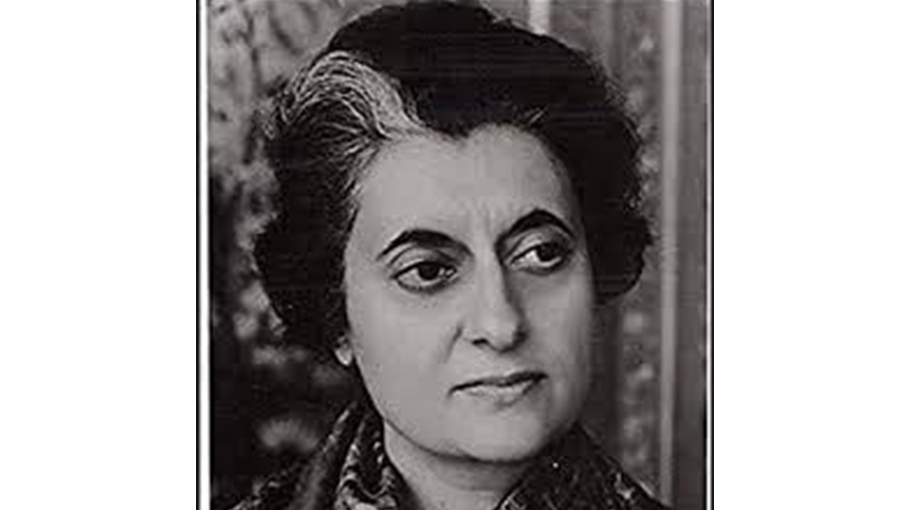December 6, a day never to forget

December six is being celebrated by the people of both Bangladesh and India. On this day in 1971 India officially declared war against Pakistan which facilitated the achievement of independence of Bangladesh. It marked a turning point in the War of Liberation of Bangladesh. As long as the independent Bangladesh exists, December 6 will be remembered with utmost exaltation and high spirits of rejoicing.
In sharp response to the Pakistani air attack on India on December 3, 1971, Indian Prime Minister Indira Gandhi had rushed to Delhi from Kolkata where she was then addressing a public rally. As soon as she was informed that Pakistan had attacked India in the western sector, she called an emergency meeting which approved the recognition to Bangladesh and on December 6 she formally declared war against Pakistan.
Being perplexed with the constant guerrilla attack by the Freedom Fighters and Indian Army, Pakistan was trying to divert the world attention from the liberation of Bangladesh to war between India and Pakistan so that a ceasefire can be reached and it was an American design to give Pakistan a sort of relief and escape route for Pakistan army. Sensing the American design to push Bangladesh Liberation War into a quagmire, Indian Prime Minister Indira Gandhi formally announced the recognition to Bangladesh and declared war against Pakistan on the 6th of December, 1971. Only after 13 days of war, a humiliating defeat was inflicted on Pakistan on December 16, 1971. On that day at the historic Racecourse Maidan in Dhaka 93 thousand Pakistani soldiers with their commander Lieutenant General Amir Abdullah Khan Niazi had surrendered to the Joint Command of Mukti Bahini (the freedom fighters of Bangladesh) and Mitra Bahini (the Eastern command of Indian Army and its commander Lieutenant General Sri Jagjeet Sing Aurora).
Read more: 50 years of Bangladesh-India relations
The defeat of Pakistan was inevitable because Pakistan president General Yahya Khan and his associates were engaged in a reverie with wine and women and, on the other hand, most of the Pakistan army officials and soldiers were engaged in looting money and systematic gang rape in Bangladesh till the last days of their surrender. The main reason of their defeat was that they had been involved in an abysmal crime. They unleashed gang rape in Bangladesh during the war. They claimed that they are Muslims, and if so, they had raped their own mothers and sisters.
They had raped sisters in presence of their brothers and girls in presence of fathers. And consequently the fathers and brothers together took up arms against those Pakistani rapists and killers. Thousands of aggrieved fathers and brothers went to war to sacrifice their lives. And their only desire was to die or defeat the rapists and killers. It was their heart-rending pledge that they would achieve independence at all costs. They had a firm and irrevocable pledge that they would either defeat the Pakistan occupation army or they would die in the battle field. They didn’t want to live after the tragic brutality and genocide perpetrated by the hordes of Pakistan Army.
When the Pakistan Army had been engaged in killing innocent people, raping the helpless girls and burning villages, cities, numberless men, women and children were crying for help. Their sharp groaning had shaken the heaven and the earth, but those Pakistani sons of bitches and butchers did not stop. That’s why the defeat was inevitable for the Pakistani junta.
The freedom fighters had ideology enriched with people’s mandate and a national principle upon which the independent Bangladesh was founded. According to some political analysts, the Pakistani defeat was already written on Feb. 2, 1971 when an Indian Airliner plane was hijacked by the Kashmiri terrorists and was blown it at Lahore airport on that day and it was really ironic that Pakistan and its opposition leader Z. A. Bhutto praised the terrorists. On the other hand, Bangabandhu Sheikh Mujib, the leader of the majority party of Pakistan, had vehemently opposed that incident and clearly told the Pakistani military junta that it was a conspiracy not to hand over power to the elected representatives of the National Assembly. With a strong voice Sheikh Mujib said the people would not tolerate the conspiracy and they would give a befitting reply. Bhutto has never been regarded as a seasoned politician. He was hand-picked by General Ayub Khan. During his time in the Ayub cabinet he developed unholy alliance with the army high officials and overnight became a pampered politician. The way he stepped into politics was regarded as an adventure and he possessed no idea about the cause of people and democracy. And because of his lack in the global norms of diplomacy and the way he reacted on the plane hijacking incident had aggravated the situation between the two countries Pakistan and India.
Known from several reports about Bhutto’s family background which was seriously disturbed, he had grown up in an extra family harmonic situation as his mother had no legal status and possibly because of that General Ziaul Haque said, “I will hang that bastard,” before he was hanged to death.
Zulfiker Ali Bhutto had never behaved like a politician. He didn’t inherit any political culture. Neither was he grownup with rich culture and tradition of politics nor his two sons were grown in a congenial atmosphere which would have helped them not choose the path of terrorism.
Under the influence of the culture he inherited, he first betrayed his mentor General Ayub Khan and finally he betrayed the real cause of Pakistan by ignoring the election results of the country’s national assembly held in December 1970 in which Sheikh Mujib’s Awami League got the majority and Sheikh Mujib was supposed to be invited by the president of the country to take oath as the prime minister of Pakistan. But in connivance with some unscrupulous military officials Bhutto destroyed a window of opportunity to start practising democracy in Pakistan. Bhutto was saying that there are three political forces in Pakistan-one is Awami League, the other is his People’s Party and the third one is Army. Army and People’s Party were united, so his people’s party would form government in Pakistan. His alternative proposals were Sheikh Mujib government in East Pakistan and he will form government in West Pakistan. That means Bhutto officially wanted the break of Pakistan. In several times and ways Bhutto proved himself a villain in politics and he never followed values and ethics. He was not a reasonable man. He wanted to see war between Pakistan and India continued for thousands of years. If he believed in democracy, had respect for the opinion of the others, the war could have been avoided. A peaceful transition to democracy would have been possible.
It was known from sources that soon after the incident Indian Prime Minister Indira Gandhi sat with the Indian generals and asked for a blueprint of war and a stipulated time to get the Pakistani Army surrender. Accordingly, the generals have given a war plan time to have the Pakistani occupation army surrender in the then East Pakistan.
As per plan, the Indian army was working with the Mukti Bahini (the freedom fighters of Bangladesh). It was learnt that even before the stipulated time they got the Pakistan Army surrender on December 16, 1971.
Taking counter measures against the Pakistani provocation the declaration of war was an obligation for Indira Gandhi to protect her nation and restoration of peace and stability in the region. It has been proved a great gesture by the Indian great leader Srimoti Indira Gandhi to recognize Bangladesh as a sovereign and independent state. The thankful people of Bangladesh will remember always that greatness with supreme respect.
Sharif Shahab Uddin is Editor-in-Chief, Bangladesh Post.



